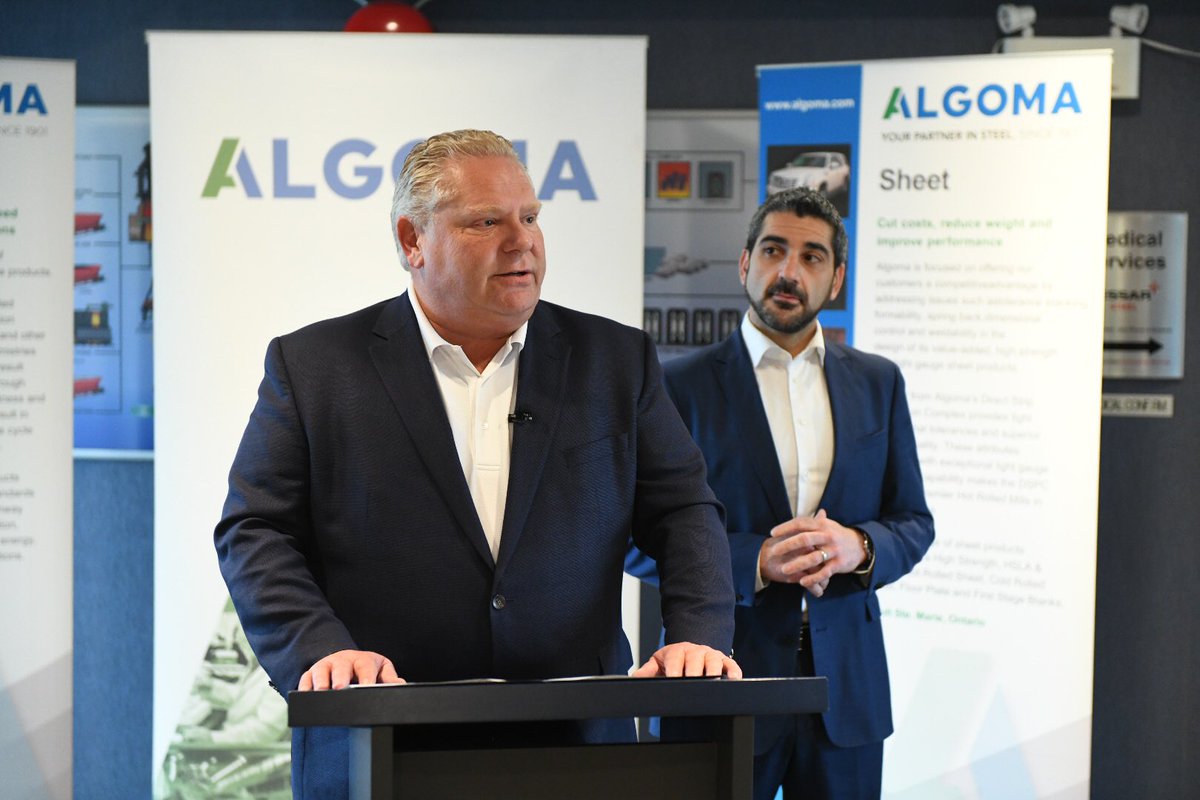Canada News
Doug Ford slams Trudeau and federal carbon tax plan

“The people of Canada are too smart to believe that Trudeau’s phoney rebates are anything more than a temporary vote buying scheme that will be discarded once the election is over,” the premier said in a statement. (File Photo: @fordnation/Twitter)
TORONTO — Ontario Premier Doug Ford has come out swinging against Prime Minister Justin Trudeau’s plans for carbon tax rebates.
Trudeau announced details of the plan Tuesday, saying provinces that have not implemented their own carbon taxation system will have one imposed on them by the federal government.
He promised, however, that the feds would return 90 per cent of the tax it collects in affected provinces directly to Canadians to keep the plan from being unaffordable.
Ford calls the rebates phoney, describes the carbon tax as an ineffective environmental protection measure, and vows he’s willing to take the province’s ongoing legal fight against it all the way to the Supreme Court if necessary.
Trudeau has said an Ontario family of four would receive $307 back through the rebates this spring, with that figure doubling by 2022.
Ford, whose Progressive Conservatives introduced legislation to scrap Ontario’s cap-and-trade system established by the former Liberal government, says Trudeau should be ready for a fight on the carbon tax issue and raised questions about the timing of the rebate announcement.
“The people of Canada are too smart to believe that Trudeau’s phoney rebates are anything more than a temporary vote buying scheme that will be discarded once the election is over,” the premier said in a statement. “In contrast, the carbon tax rip-off is forever.
Ottawa required all provinces to put a minimum price on pollution of $20 a tonne of emissions by Jan. 1.
Ontario, Saskatchewan, Manitoba and New Brunswick have not complied and will have a federal carbon levy on fuels as well as a cap-and-trade style system for large industrial emitters imposed on them.
Residents in those provinces will start getting federal rebates on their next tax return to offset the extra costs they will pay for everything from gasoline and groceries to home heating and electricity.
Ford has joined other provincial leaders in challenging the carbon tax in court.
British Columbia, Alberta, Quebec, Newfoundland, and the Northwest Territories all put a price on pollution high enough to meet federal standards and the revenues in those provinces are being handled by those provincial governments. Nunavut and the Yukon both chose to use the federal system and therefore they also will get to decide how to use the revenues.
Prince Edward Island asked to use just the big industrial emitters portion of the federal program, but will have its own carbon levy, so it too will get to distribute the revenues as it sees fit.
Ottawa anticipates collecting more than $2.3 billion in carbon taxes and 90 per cent of that will go to household rebates. The payments vary because carbon taxes collected will be higher depending on how provinces power and heat homes.
The remaining 10 per cent will be handed out to small and medium-sized businesses, schools, hospitals and other organizations that can’t pass on their costs from the carbon tax directly to consumers.
Details of that program are not yet available.
Rebates will be determined when Canadians file taxes, either added to the refund payment or deducted from tax owing. The amount will be based on the number of adults and children in a household.
People who live outside of census metropolitan areas will get 10 per cent more than those in cities to account for their increased energy use and lack of public transportation as an option to reduce their fuel consumption.





















